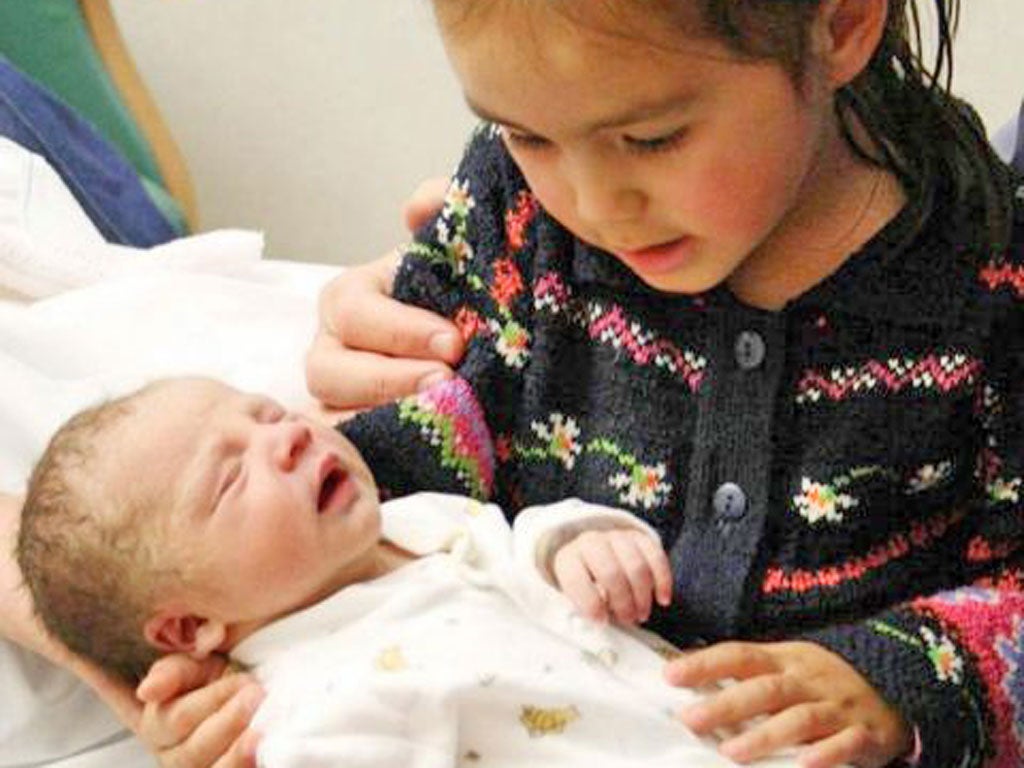Watchdog waited two years to act over failing maternity units
Care Quality Commission knew of fears about care standards at NHS trust, internal documents show

“Systematic failures” at a NHS hospital trust were suspected by the health watchdog more than two years before it finally launched an investigation that exposed scandalously poor care.
Documents seen by The Independent reveal that a senior Care Quality Commission official was warning in 2009 that further “tragedies” at Morecambe Bay NHS maternity units would only be avoided if care significantly improved.
Overarching problems throughout the trust were also known, or at least strongly suspected in 2009. The CQC and health ombudsman were worried that the serious failings in maternity and children’s services were being repeated across other departments, according to the internal documents.
Last night calls for an independent inquiry into the regulatory failings involving the trust – where thousands of outpatient appointments were ‘lost’, security guards stood in for nurses, patients were left unattended in A&E without pain relief for seven hours - intensified. The failures happened just months after the scandal at Mid Staffordshire came to light – which was also certified as safe and sound by regulators as people were dying needlessly from substandard care.
The CQC unconditionally registered University Hospitals Morecambe Bay NHS Trust in April 2010 (without restrictions) and also gave maternity services a clean bill of health.
The registration process was controlled by CQC headquarters rather than regional inspectors, The Independent has learnt. No trust was judged to have ‘failed’, yet serious concerns soon emerged about several hospitals including Morecambe Bay and Basildon and Thurrock.
Peter Walsh from Action against Medical Accidents said: “The CQC were the new kids on block, boldly saying that there would never be a Mid Staffs under their watch. Okay they didn’t yet have full powers, but they were far too willing to accept unsubstantiated assurances and get cosy with the Trust rather than look beneath the surface.”
He added: “Every part of the system collectively and individually failed. An independent inquiry is needed to answer serious questions about how different organisations supressed information and those responsible held to account.”
Ten-day-old Joshua Titcombe died in November 2008 as a result of failures at the trust’s Furness General Hospital maternity unit.
An internal memo within the health ombudsman’s office in September 2009, describing a telephone conversation from Alan Jefferson, the CQC regional director for the North-west, said:
"Mr Jefferson was well aware of this case which he felt provided evidence of systematic failure in maternity services across the Trust… The concerns raised are in relation to the operation of the Trust itself.
"The larger question also remains. If this is happening in maternity and children's services, what is happening in the rest of the trust?"
The concerns continued. In a letter to James Titcombe in December 2009 Mr Jefferson said: “I am able to confirm that at the present time we have a number of concerns about the operation of UHMBT, some of which stem from information the trust has provided to us about its own investigations surrounding Joshua's death and some of which are quite separate.”
"We believe that if future tragedies are to be avoided, the trust needs to be able to evidence much more integrated approach to care."
The same inadequacies were emphasised by the coroner ruling in Joshua’s inquest in June 2011. The number of clinical negligence claims against the trust doubled from 29 in 2006/07 to 60 in 2010/11.
Local MP John Woodcock last night said the documents raised serious questions for the regulators. "The systemic failures in hospital management which caused much suffering extend to the watchdogs charged with safeguarding patients."
In 2009 Mr Titcombe complained to the Ombudsman, who decided not to investigate after deliberating for a year.
An email from the trust’s former CEO to the former chair in June 2009 reads: “If I’m correct then CQC can cover off the Ombudsman in their response if they are prepared to have that conversation with them which they didn’t indicate they were not.”
The CQC denies “acting improperly”, and insists that it acted proportionately against the Trust, according to information it had at the time.
A spokesman said it did have concerns about UHMB in 2009 but it lacked enforcement powers until April 2010. The Trust was registered after declaring “it was fully compliant” and taking action in response to baby Titcombe’s death.
He added: “Since registration, CQC has escalated its scrutiny of the trust, taking enforcement action and carrying out an investigation.”
Mr Titcombe last night said: "The statement made by the CQC simply doesn't ring true with me… We fought for the truth because we wanted to prevent what happened to our son from happening again. The devastating reality is that we failed miserably, the risks that led to Joshua's death persisted at FGH until at least late 2011.”
UHMBHT said: “There have been significant changes at the Trust over the last six months, including a brand new Trust Board… We have listened to concerns raised by our regulators and have made good progress in all areas.”
Join our commenting forum
Join thought-provoking conversations, follow other Independent readers and see their replies
Comments
Bookmark popover
Removed from bookmarks